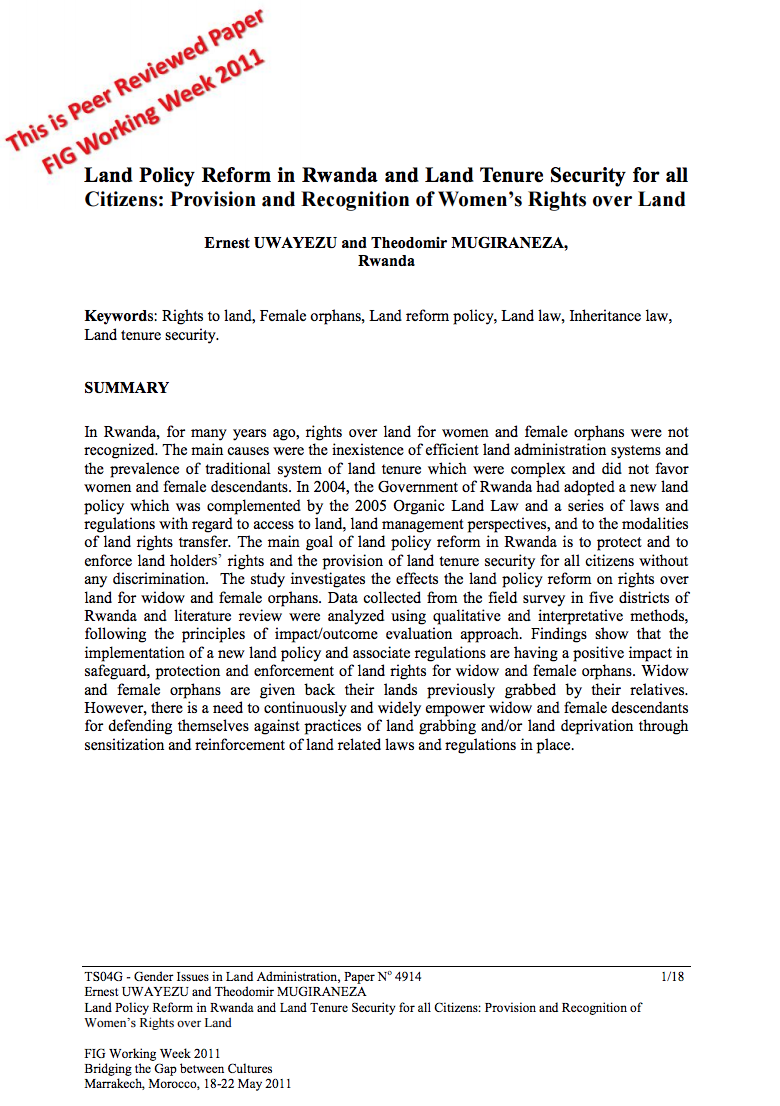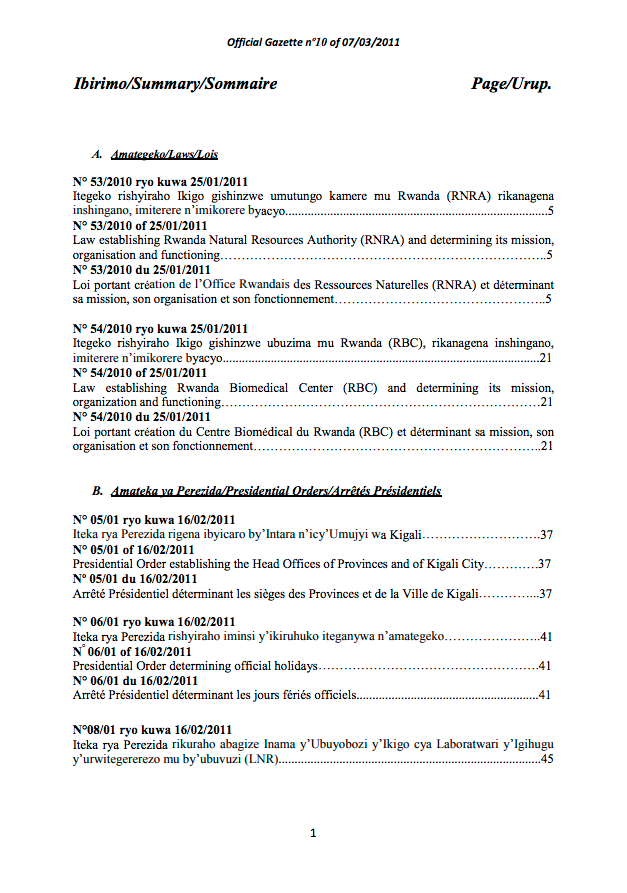The LAND Project is a five year program supported by the United States Agency for International Development (USAID). Its primary goal is strengthening the resilience of Rwandan citizens, communities and institutions and their ability to adapt to land-related economic, environmental and social changes.
Resilience is defined as “the ability to withstand or recover from difficult conditions.” It also comprises the ability of human and ecological systems to recover from shocks or difficult changes, and to transform to a better condition by responding flexibly and creatively to stress factors. In Rwanda, land tends to be one of the primary assets citizens rely on to buffer against difficult conditions and rapid change.
The project’s central objectives are twofold:
1.Increased capacity of local Rwandan institutions to generate high quality, evidence-based research on land-related issues that can be used by the Government, civil society organizations, and Rwandan citizens.
2. Increased understanding of land laws, policies, regulations, and legal judgments on land-related issues by GOR officials, local civil society organizations, research institutes and citizens.
Key outcomes of the project include:
- Holding annual National Land Research Agenda workshops to establish the research priorities of land sector stakeholders that the LAND Project will support. These workshops bring together multiple stakeholders from government, civil society and the research community;
- Supporting research on land-related issues through competitive awards to Rwandan research institutions, universities, and civil society organizations, and providing tailored capacity building assistance to improve research and advocacy capabilities;
- Offering training and other support to legal assistance providers to enhance their capacity to support women and vulnerable populations in understanding and realizing their land rights;
- Training local land authorities on the implementation of the land law and regulations.
- Carrying out research on critical land issues, including gendered land rights in practice, community rights to resources in and around protected areas, and expropriation.
- Managing a land-focused website to improve research, communications, and policy advocacy efforts that are focused on land, and to act as a vehicle for enhancing collaboration between actors working in the land sector;
- Providing organizational development support to civil society organizations supporting women’s land rights.
- Supporting innovative and coordinated communications approaches by civil society and government that enhance the knowledge of Rwandan citizens about research findings and their land rights.
Because the LAND Project is a five year endeavor, we are seeking an institution that has the interest, capacity, skills and resources to eventually take over hosting and maintenance of the website, ensuring it stays up-to-date and relevant to the land sector stakeholder community. If your organization is potentially interested in assuming management of this site, please contact us and tell us why you believe your institution would be an ideal candidate.
Members:
Resources
Displaying 56 - 60 of 149Manipulating the Rural Landscape: Villagisation and Income Generation in Rwanda
The aim of the present paper is to investigate whether households relocated to government- built village settlements, as part of Rwanda’s Villagisation programme (‘Imidugudu’), diversify into non-farm income-generating activities to a greater extent than other rural households in Rwanda, and if so, to what extent the variation can be explained by differences in micro-level asset and meso-level access factors.
Farmers, Institutions and Land Conservation
Institutional Economic Analysis of Bench Terraces in The Highlands of Rwanda
This study consists of seven chapters. Chapter 1 sets the stage of the thesis in terms of problem statement, theoretical perspective, objectives and research questions, the research area and data collection procedure, and ends with this outline. Chapter 2 will provide an account of soil erosion against the background of the environmental discourses that have emerged over time in Rwanda. Chapter 3 will discuss how farmers perceive their participation, the role of their organizations and institutions in soil and water conservation in Northern and Southern Rwanda.
Land Policy Reform in Rwanda and Land Tenure Security for all Citizens: Provision and Recognition of Women’s Rights over Land
In Rwanda, for many years ago, rights over land for women and female orphans were not
recognized. The main causes were the inexistence of efficient land administration systems and
the prevalence of traditional system of land tenure which were complex and did not favor
women and female descendants. In 2004, the Government of Rwanda had adopted a new land
policy which was complemented by the 2005 Organic Land Law and a series of laws and
regulations with regard to access to land, land management perspectives, and to the modalities
Law N° 53/2010 of 25/01/2011 Establishing the Rwanda Natural Resources Authority (RNRA) and Determining its Mission, Organization and Functioning.
Law N° 53/2010 of 25/01/2011 Establishing the Rwanda Natural Resources Authority (RNRA) and Determining its Mission, Organization and Functioning.
Experiences of Women in Asserting their Land Rights: The Case of Bugesera District, Rwanda
Experiences of Women in Asserting their Land Rights: The Case of Bugesera District, Rwanda





